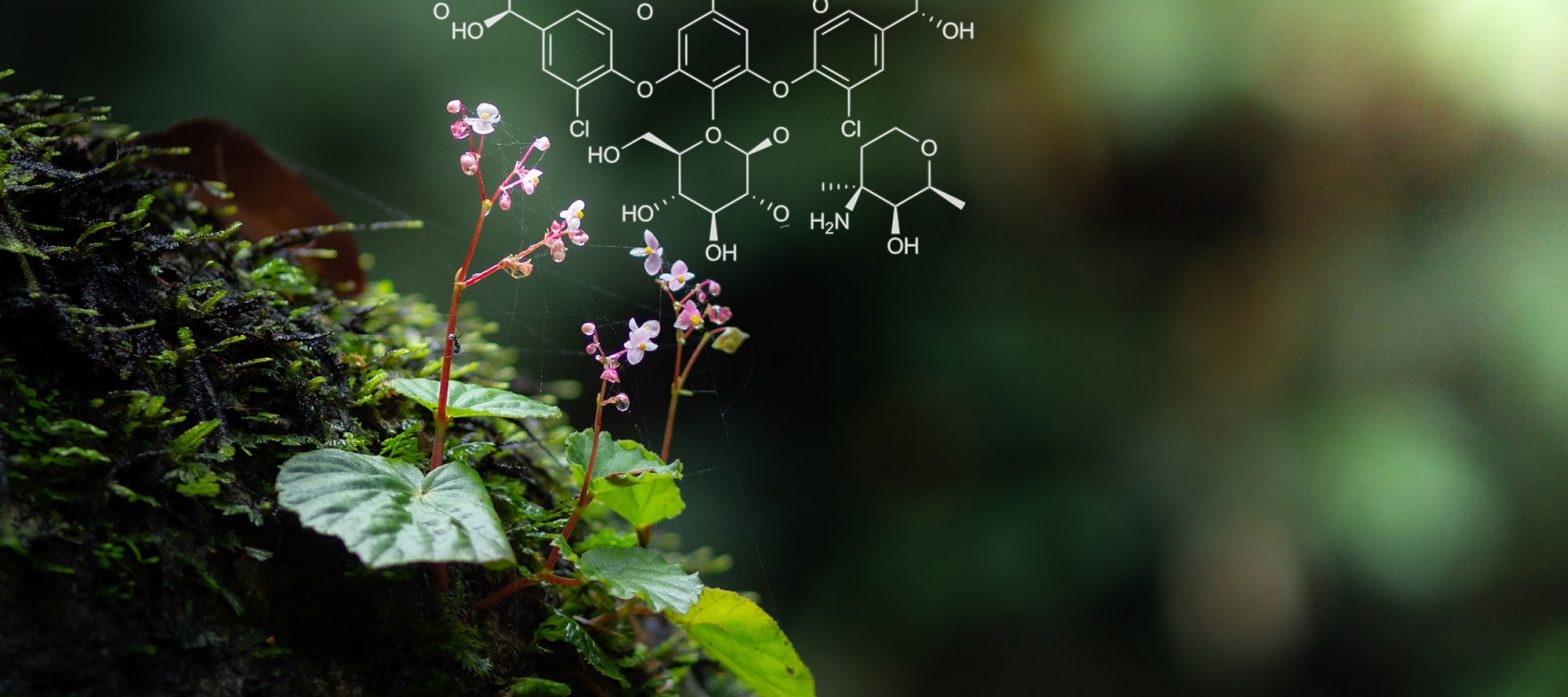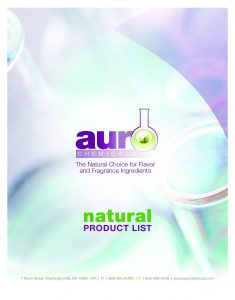With all the debate over additives introduced into many processed and preserved foods, including coloring agents, emulsifiers, preservatives, thickeners and numerous other substances, it’s little wonder that the conversation has also come to involve the use of flavoring agents. The key factor at the center of the controversy is the question of whether artificially produced additives, including artificial flavors, are actually good for the body.
One group believes artificial flavors pose no risk whatsoever. Aurochemicals, however, is leading the way among the growing faction offering clear evidence that natural flavors are in great demand and reflect a popular trend of global dimensions. Customers are looking for ingredients that are more representative of nature's offerings that can provide flavor and scents of authenticity in final products. Also in line with many food manufacturers offering natural or "all natural" finished products, it is obvious that many of the formulations and key ingredients of a particular food line must incorporate natural flavors in order to support regulatory and label claims or requirements.
Most simply put, flavors are the elements that give food its taste. Produced for the combined senses of taste and smell, flavor gives foods their distinct characteristics, allowing them to leave lasting impressions. Humans have the ability to enjoy five distinct types of taste – sweet, salty, sour, bitter and savory. However, the sense of taste is not what primarily determines the way we perceive the flavor of food. Rather, the sense of smell is what mainly allows us to differentiate between foods.
It is through the use of added flavors that we are able to enjoy varieties of foods that have the exact same type of taste, but that have completely different sensory tastes. By altering the smell of the food through the use of added flavors, we end up with, for example, the many different fruit flavors in a package of hard candy. Flavor enhancements have no effect on the original nutritional value of food.
Although food in its natural state does not need to be flavor-enhanced, most processed and packaged foods require a certain amount of additional flavoring. This is because, during the processes necessary to preserve food – including canning, dehydrating, heating and freezing – a substantial amount of flavor is lost. Without added flavoring, most preserved foods wouldn’t taste anywhere near as good as their fresh counterparts.
There are two ways of enhancing the taste of foods – through the use of either natural or artificial flavors. These added flavors help to bring out the taste of foods more completely, particularly in cases in which one preservative technique or another has diminished the naturally occurring flavor. Both natural and artificial flavors are created in a lab by trained professional flavorists, whose training in chemistry allows them to produce flavorings that can be safely consumed.
While both natural and artificial flavors contain chemicals, there is a key difference between the two. Artificial flavors are sourced from synthetically produced chemicals, whereas natural flavors are taken directly from plants or animals. Although natural flavors may undergo some processing before being added to foods, they cannot be modified using artificial substances.
The role of the flavorist is to produce flavorings that closely mimic flavors found in nature. The industry has invested in considerable experimentation, using various chemicals in combination with each other to develop very precise recipes. By using standard chemical mixtures, the industry is able to ensure the consistency of its products, which is useful from a marketing standpoint because it allows consumers to know what to expect taste-wise from any given product.
There has been a lot of debate over the use of artificial ingredients and synthetic chemicals in food. This debate has coincided with a sizable movement toward natural foods, which promise safety and total transparency – what you see is what you get. With natural foods, customers don’t have to worry about added chemicals or products that have unpredictable or unclear effects.
The same principle applies to the creation of natural flavors. Because they are created using only chemicals and compounds found in plants and animals, anyone consuming foods that have been enhanced with natural flavoring can rest easy knowing that what they are consuming is safe. Natural flavors simply do not carry the risk, or even the possibility of risk, associated with artificial flavors because their ingredients are entirely natural.
Natural flavors are also preferable from a manufacturing standpoint. Working with these ingredients is a cleaner, less hazardous process than working with synthetically produced chemicals. This is largely because there is less opportunity for contamination from metallic species. In addition, a major part of Aurochemicals’ approach to manufacturing and distributing natural ingredients is the company’s commitment to avoiding the use and handling of any allergenic materials. These materials can make products unsafe for human consumption, so we have opted to eliminate the risk.
Aurochemicals recognizes the importance of natural ingredients. That’s why the company is committed to meeting high standards for its customers in every aspect of its manufacturing process, from safety and quality control to customer service, to deliver the finest natural flavors possible.



